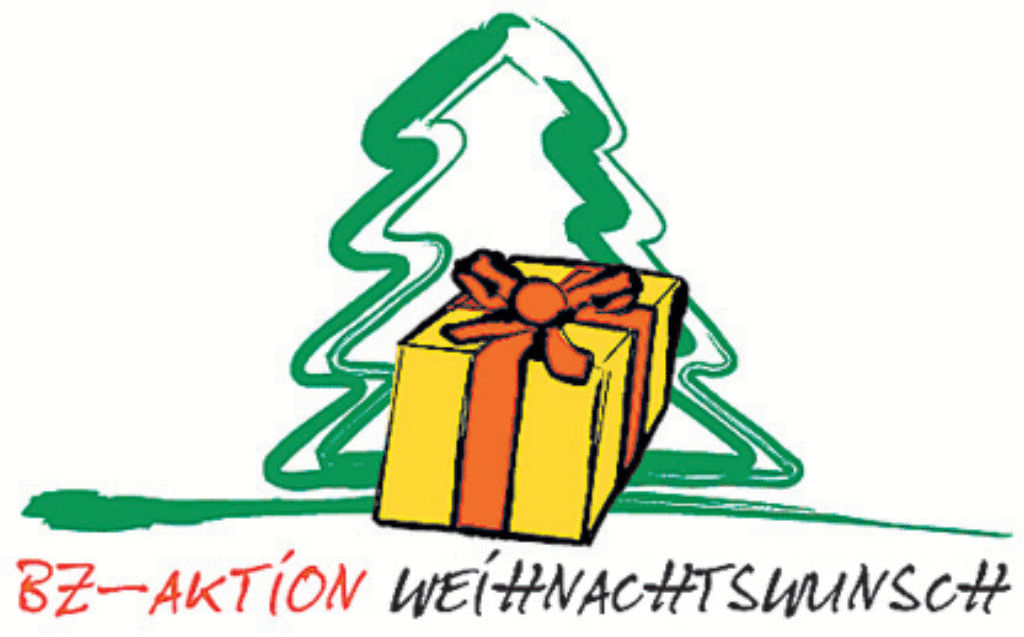The social educational family aid from the Red Cross provides support in many areas.
. Five non-profit organizations support the BZ Christmas wish campaign in the Upper Black Forest and give money and donations in kind to those in need where they are urgently needed. One of these organizations is the social-educational family aid of the Red Cross.
The Red Cross helps at the district level and through the individual local associations, as Operations Manager Claudia Wehinger-Schpperle explains. Above all, the helpers in the local clubs are important, because they are there, see the need there and report it when someone urgently needs support. The money from the BZ Christmas wish campaign helps immensely. But there are also caregivers who report those in need. In addition, she maintains contact with the refugee aid associations in the Upper Black Forest, which also provide information.
Some of the money is also used to pay out Christmas bonuses to families in need. That is always a difficult decision, says Claudia Wehinger-Schpperle. Because the question arises every time who gets something and who doesn’t and if so, the amount is appropriate. Making a fair selection here is difficult for them personally.
Meanwhile, more and more refugee families come to the Red Cross and want to apply for a Christmas bonus. The family size is used as a guideline. Nevertheless, this is an additional time burden for her, which she sometimes works through on a voluntary basis in her free time.
But even during the year she has a lot to do with families who live in precarious circumstances. For example, there is a woman who wants to cook in advance, but has no freezer, just a small compartment in the refrigerator. Even if a washing machine broke and there is no money available for a new one. So it is good if the need becomes visible and the Red Cross can give a subsidy for it.
In some cases, however, young people also receive support as part of the educational assistance for children and young people. If, for example, activities are offered such as visits to the swimming pool, the climbing hall, ice skating or to eat a kebab together, the employees will be reimbursed the expenses. But not all young people can pay for this out of their own pocket. Here, too, support can be provided if the financial means are lacking.
The Corona crisis made the work in the area of family support much more difficult because family visits were no longer possible. The work safety of the employees was also important so that they do not carry the virus into other households. “A lot of imagination was required,” says Claudia Wehinger-Schpperle. Many activities have been moved outside and have just gone for a walk or ride a bike. Contact with the families has also been reduced to outdoor meetings, video or telephone calls. But it was important not to lose contact with the families completely.
From senior work to family help
The position that Claudia Wehinger-Schpperle is filling has grown so much in recent years. 20 years ago there was a lot more focus on senior work, she says. In the meantime, the family welfare and the socio-educational youth welfare have been added, where one offers help with upbringing. Now she works more in the office, but is also out with the families. So their job is very varied. She also has between 30 and 35 employees in the Black Forest and the Dreisamtal. Controlling that is also exciting, she says.
Barbara Mller is responsible for providing food aid to families affected by poverty. It’s all about flour, sugar and coffee. This is paid for from the Red Cross fund. They also offer a shopping service and bring the goods home. In the past, you could still talk to the families, but this is no longer possible because of Corona. You hand over the goods at the door. She was particularly challenged by the BZ Christmas wish campaign. Since the BZ office in Neustadt has been closed, the goods have been brought to her home. This time, these are mainly pasta, flour, coffee as well as Linzertorte and Christmas cookies. Ten families were given it. The packages were packed on Friday and driven out on Saturday. A donation of small rolls also benefited. They are well suited to decorate the packages, says Mller. Seven helpers were busy packing. Two teams delivered the packages on Saturday, equipped with masks and uniforms. She has also found that larger families in need of help grow a little more. But the best you can find out about the really poor is by chance. And they are more ashamed when they get something, says Barbara Mller.
–


